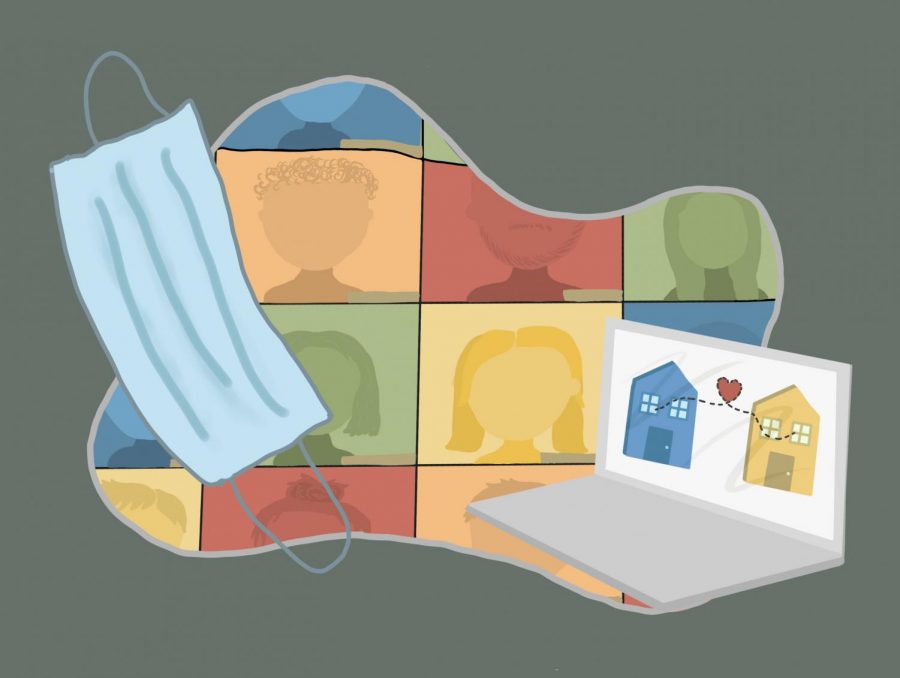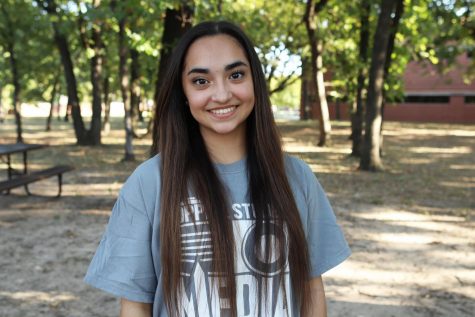Editorial: Treat COVID-19 as a resource instead of a curse (with video)
The coronavirus pandemic affects the trajectory of millions of people’s lives across the globe and forces many Americans to stay home and take safety precautions. The Sidekick editorial board argues teenagers should focus on the positive impacts of COVID-19 and treat it as a resource that will improve our identity as a community.
October 2, 2020
What does not kill you makes you stronger.
While we should take the time to recognize and grieve what we have lost because of COVID-19, we need to shed some light on the situation so we do not drown in negativity. Living through a pandemic can be mentally and physically draining, and as a result, many teenagers have developed new skills, strengthened relationships and become more responsible.
For Coppell ISD students, March 6 was the last day of in-person school for the next six months. A majority of students are still learning virtually and have not been inside a classroom since spring break.
We have lost family, friends and quintessential parts of our high school experience while we were forced to adapt to a situation very few were prepared for.
Schools needed to address the lack of access to educational resources outside of school, which was exacerbated by online learning. For example, students faced unstable WiFi connections, while parents had to accommodate their work schedule for children at home.
While the situation is less than ideal, COVID-19 has pushed high school students to adapt to these situations, causing us to become more independent. Being responsible for our work during a volatile time prepares us for future years when our schedules are more flexible.
When we are invited to large public gatherings, we have the duty to value safety over temporary pleasures. Pandemic concerns have made us more conscious about everyday decisions that could affect our health and reminded us to take safety precautions such as washing our hands seriously.
Self-isolation has separated normally social high schoolers from their friends, some of whom they would see every day at school. When someone we know tests positive for COVID-19, watching them struggle to breathe and not knowing whether they will get through it takes an emotional toll. In fact, 7 in 10 teenagers have struggled with their mental health during the pandemic and 61% say COVID-19 has made them feel more lonely. Dealing with these negative feelings can be tough, but it has led to a more acute sense of emotional maturity and responsibility in teenagers as they reconcile the year they planned with the one they are getting.
Major aspects of our lives have shifted dramatically, but we did not lose everything. Technology is allowing us to translate our pre-pandemic life into a new normal. In particular, the popular video conferencing application Zoom is instrumental in the transition to online school.
As school and work adjust to virtual platforms, families spend more time together, bonding through boredom and forced interaction. Staying at home allows us to revive long-distance relationships, and social media applications such as TikTok connect teenagers from across the world. TikTok creators have also taken advantage of the platform’s conveniently short videos to educate users about world news.
During this time, we started learning and caring more about injustice in the world we will inherit. Wildfires burning through the West Coast ignited our distress about climate change. Overt racism in our city has caused us to take to the streets in protest. The more time we spend scrolling through social media in self-isolation, the more we realize action needs to be taken.
Because of COVID-19, we understand that it is important to be grateful for our way of life before seemingly everything changes. Our generation will grow up remembering the moments shared with friends standing six feet apart. We are united in our experience during this time of global confusion and despair, through common interests and common struggles.











